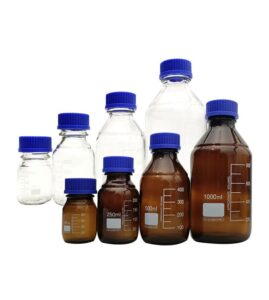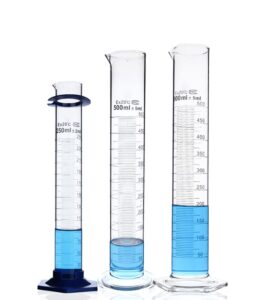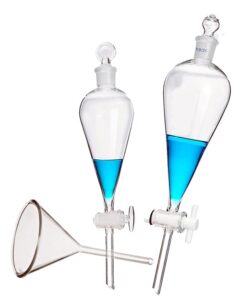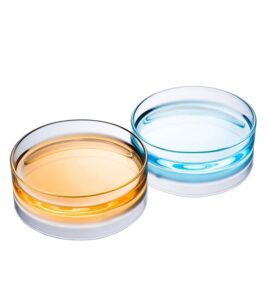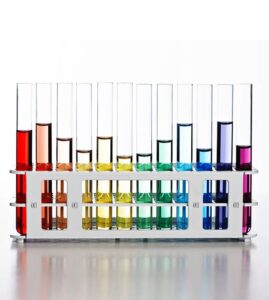Have you ever found yourself nervously handling laboratory glassware, acutely aware of its fragility? Have you questioned whether you’re holding that Erlenmeyer flask the right way? Or perhaps you’ve wondered if there’s a particular method to clean and store these delicate pieces of equipment to ensure their longevity?
Handling glassware in the laboratory can be an intimidating task, particularly for those new to the lab environment. However, with a few key practices and precautions, you can confidently handle, clean, and store these crucial tools of scientific exploration. By following these steps, you will not only ensure the safety and efficiency of your experiments, but also prolong the lifespan of the glassware.
Let’s dive deeper into the world of lab glassware, quelling those concerns and equipping you with the knowledge and skills to handle them with ease.
What are the different types of laboratory glassware?
It’s important to understand the different types of laboratory glassware, as each requires specific handling techniques. The most common types include beakers, flasks (Erlenmeyer and volumetric), test tubes, pipettes, burettes, and Petri dishes. Each piece has its own unique function, and hence, its own handling needs.
For example, pipettes require special handling due to their precise measurement capabilities. Over time, mishandling or improper cleaning can cause pipettes to deliver inaccurate volumes, potentially compromising the results of an experiment.
What are the best practices for handling laboratory glassware?
Here are some general guidelines to follow when handling laboratory glassware:
1. Handle with Care: Laboratory glassware is often expensive and fragile. Always handle it with both hands, ensuring a secure grip.
2. Use Appropriate Tools: When using equipment like burettes or pipettes, always use the correct filler devices. Never try to force a stopper or lid onto a piece of glassware that doesn’t fit.
3. Avoid Extreme Temperatures: Sudden temperature changes can cause glassware to crack or shatter. Always allow glassware to gradually adjust to temperature changes, particularly when dealing with hot glassware.
How do I properly clean laboratory glassware?
Proper cleaning of laboratory glassware is crucial. Residue from previous experiments can interfere with new ones, leading to inaccurate results. Here are a few steps to ensure your glassware is cleaned effectively:
- Rinse Immediately: After use, rinse your glassware with distilled water to remove any remaining substances.
- Clean with Detergent: Use a lab-approved detergent to clean the glassware. Ensure that the detergent is thoroughly rinsed off afterward.
- Rinse with Acetone: Acetone can help remove any remaining water, speeding up the drying process.
- Dry Properly: Allow the glassware to air dry on a dedicated drying rack.
How should I store laboratory glassware?
Proper storage is as essential as handling and cleaning when it comes to prolonging the life of your laboratory glassware. Here are some important guidelines to consider:
1. Store Glassware Upright: If possible, always store your glassware in an upright position to prevent dust from accumulating inside.
2. Keep Original Packaging: Whenever possible, keep the original packaging of the glassware. It is designed to protect the glassware from damage.
3. Avoid Stacking: Glassware should never be stacked unless it is designed for such storage. Stacking can lead to pressure points, causing the glassware to crack or break.
What should I do if the glassware breaks?
Despite all precautions, accidents can happen. Here’s what to do if your laboratory glassware breaks:
1. Notify a Supervisor: Always report the incident to your laboratory supervisor. They can guide you on the appropriate steps to take next.
2. Never Pick Up Broken Glass with Hands: Use a brush and dustpan to collect the broken pieces. Larger pieces can be picked up with thick gloves.
3. Dispose of Broken Glass Properly: Broken glass should be placed in a designated sharps container, not the regular trash.
Conclusion
Understanding how to handle glassware in a laboratory is crucial for anyone working in such an environment. By following the steps outlined above, you can ensure not only your safety but also the longevity and efficiency of your glassware. Remember, the key is to handle with care, clean thoroughly, store correctly, and always be prepared for accidents. With these best practices, you can confidently navigate your laboratory duties with ease and precision.




